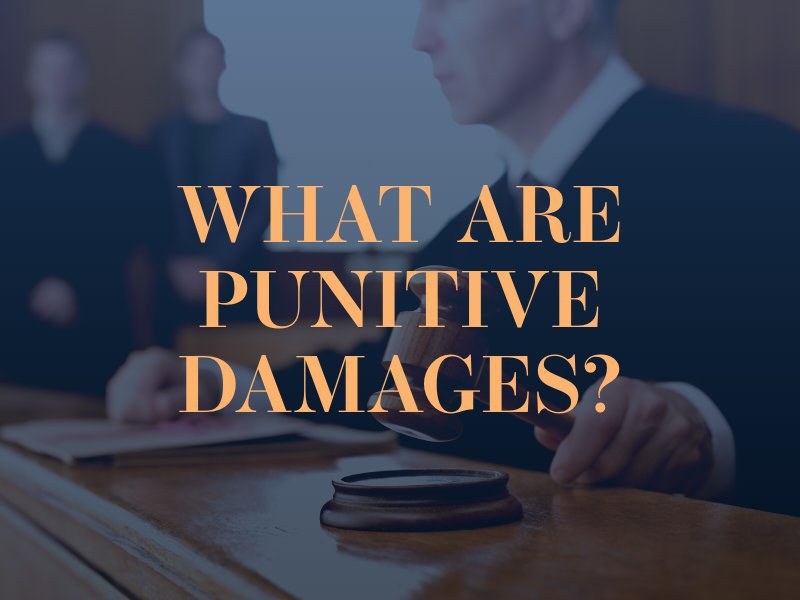What Are Punitive Damages?
If you or somebody you love has been injured due to the careless, negligent, or intentional actions of another party, it may be necessary to file a personal injury lawsuit against the party responsible. These cases can become complicated, though they may be necessary in order for a person to recover the full compensation they are entitled to. There are various types of damages that may be awarded in a successful personal injury case. This includes economic and non-economic damages such as medical bills, lost wages, pain and suffering damages, etc. In some cases, punitive damages may also be awarded in a personal injury case. Here, we want to discuss what punitive damages are and how they are calculated.

Understanding Punitive Damages
Punitive damages are also referred to as exemplary damages. As the name suggests, these damages are designed to punish the defendant of a case (the at-fault party). These damages are awarded with the aim of both deterring the defendant and others from performing the same actions or conducting themselves in the same way they gave rise to the lawsuit while also punishing them for the conduct in the first place. Punitive damages are often awarded to set a public example.
Punitive damages are not awarded in every personal injury case. The following factors are of particular importance when determining whether or not punitive damages will be awarded by the court:
- Assessing the actions of the defendant and determining whether or not they were malicious, grossly negligent, or intentional.
- Analyzing similar cases to determine if punitive damages were awarded.
How Are Punitive Damages Calculated?
There is no fixed standard used when determining the amount of punitive damages awarded in a California personal injury case. Typically, a jury is given free rein to determine how much punitive damages they wish to award. In these cases, juries will typically consider various factors, including the following:
- How reprehensible the conduct of the defendant was in the case.
- Whether there is in a reasonable relationship between the harm the plaintiff sustained and the amount of punitive damages.
- What amount would reasonably punish the defendant and discourage future wrongful conduct by the defendant and others.
- The defendant’s financial condition.
Are There Caps on Punitive Damages?
Unlike other states, California does not place a limitation on how much can be awarded in punitive damages for a personal injury case. In other areas across the country, punitive damages are not allowed to exceed certain amounts, typically three times the amount awarded in compensatory damages. Because there is no such cap in California, punitive damages can reach higher than three times the amount of compensatory damages.
It is not uncommon for a jury to return a very high amount of punitive damages in a case only to have a judge determine that the amount is excessive and then reduce the punitive damages awarded. However, this reduction will only apply to the punitive damages and not to compensation awarded to the plaintiff for their medical bills, lost wages, and pain and suffering.
Unlike other types of damages awarded in personal injury cases, plaintiffs (the injury victims) will be required to pay taxes on any punitive damages awarded in their case. Learn more about punitive damages by speaking with a knowledgeable Irvine, CA personal injury lawyer.